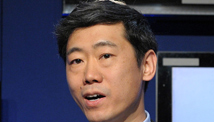Why does the U.S. need China?
November 10, 2010 -- Updated 1738 GMT (0138 HKT)

STORY HIGHLIGHTS
- Li writes that the United States and the West have not lost their dominance in the world
- He says domestic forces, not exchange rate appreciation, drive growth
- Li says the dispute over the RMB exchange rate is counterproductive
- Li: A large increase in exchange rates will export inflation to U.S. consumers
RELATED TOPICS
Editor's note: Li Daokui is director of the Center for China in the World Economy at Tsinghua University in Beijing and also adviser to the China's Central Bank.
Beijing, China (CNN) -- The United States needs China for two simple reasons: China can make a difference in the world after the financial crisis, and more importantly China's fundamental interests are aligned with the United States.It is obvious that China can make a difference in the world today and tomorrow. China is the world's leading exporter of manufactured goods. A sudden appreciation of its currency would inevitably export inflation to the rest of the world, which is not welcome by American families struggling to find jobs. China holds the world's largest currency reserves, enough to buy up the share prices in New York or sell down the yield curve of the T-bond.
Halfway into industrialization, China has become one of the largest emitters of global warming gas -- understandable, as it has followed the growth path of the West. Whether China can creatively find a new approach to modernization holds the key to the success of mitigating global warming. Last but not least, developing countries, including those in Africa, are watching carefully what China is doing. If China can be successful in achieving a balanced, sustainable and green growth, many other emerging economies will follow.
Does this mean that the United States and the West have lost their dominance in the world? Not at all! The West still enjoys the highest living standard and best educational achievement, still possesses the world's most important and relevant technologies, be it military or green, and still maintains by far the most formidable military power. Perhaps, most important to me as an economist, the West was not only the builder but also the most skillful mover and shaker in today's international institutions. The United Nations, the International Monetary Fund, the World Bank, and the G-20 were all initiated in the West. The most skillful professionals working in China are from the West or trained in the West. The most useful working language is English.
 UK prime minister visits China
UK prime minister visits China  Currency conflict with China
Currency conflict with China  China a currency manipulator?
China a currency manipulator? China's policy makers understand the need to reduce its trade surplus in order to reduce its exposure to international economic volatility. They realize that their household income needs to increase faster in order to boost domestic income and to bring real benefits of economic growth to its population. They also understand that China's growth of energy consumption must come down, relying more upon green energy and recycled materials. This awareness and commitment can be found in black and white in various official policy papers including the recent Guide to the next Five Year Development Program.
In fact, progress has been made in China in rebalancing growth. This year alone, trade surplus is likely to be below four percent of GDP, coming down from nine percent before the finance crisis and five percent last year. Imports are growing much faster than exports. Household consumption is outpacing GDP by five percent.
How have these been achieved? Exchange rate appreciation is not the most important factor. The driving factors are domestic forces. Wage rates of the exporting sector have increased by 20 percent this year. Taxes were cut for some consumption goods. Importing inland regions are encouraged to grow much faster than exporting coastal areas. Structural changes are much more fundamental than nominal appreciation.
The continued dispute on the RMB exchange rate may well be the saddest tragedy of economic policy making in the post-crisis world
--Economist Li Daokui
--Economist Li Daokui
RELATED TOPICS
The end outcome of such a rapid appreciation is continued trade surplus with inflation in the West, which in turn brings in more expectation of nominal appreciation, causing capital flowing from the United States into China for arbitrage, offsetting the impact of Quantitative Easing (QE2) in the U.S. economy. Moreover, this scenario provides juice to conspiracy theories that renminbi (RMB) appreciation and the QE2 are just contrivances to undermine the Chinese and developing countries' modernization process.
The continued dispute on the RMB exchange rate may well be the saddest tragedy of economic policy making in the post-crisis world, since both the Chinese and U.S. sides share the same fundamental interest of rebalancing trade and growth but in the end ruin each other's endeavors. It is like the captains of two giant ships spending precious time arguing about the best techniques to steer the course and causing the ships to eventually collide.
In a larger context, the G-20 is perhaps the only tangible reward to the world in the wake of the financial crisis. Let us hope the leaders will not waste the precious good will and political capital on senseless issues like the exchange rate. Rather, they need to work on something much more relevant and effective to mitigate global imbalances, to reinvigorate growth and to avoid future crises.
No comments:
Post a Comment